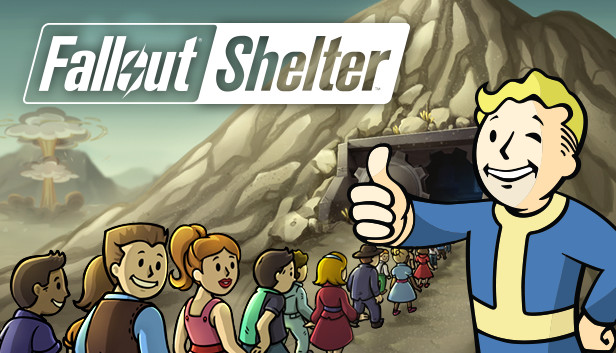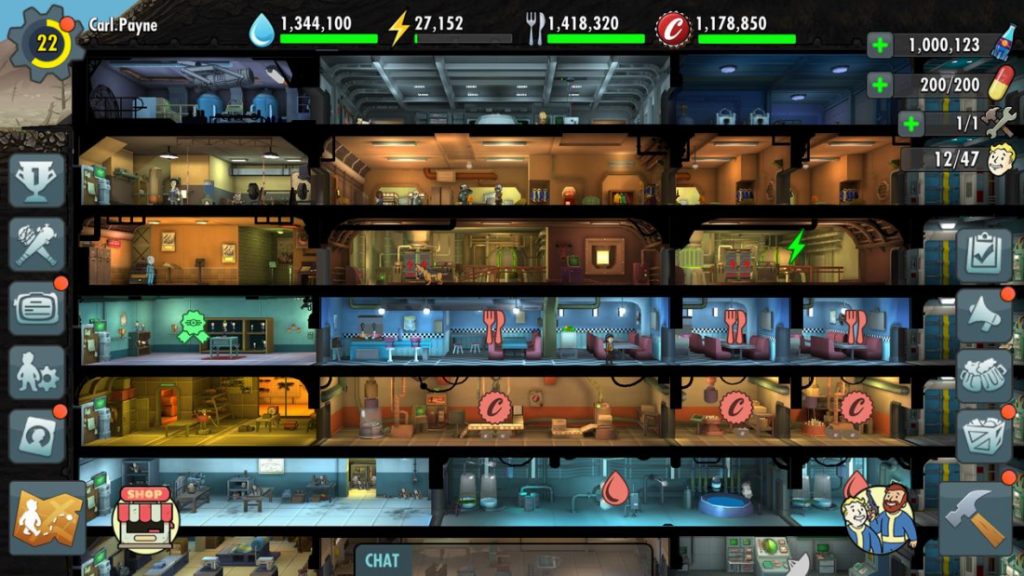
Nostalgic and old-fashioned Fallout Shelter. Review and impressions
Fallout Shelter from Bethesda gives you the opportunity to try your hand at upgrading to provide a decent life for those who feel the conditions of the post-apocalypse. Balancing the need for food, water and energy while fending off creepy creatures, raiders and other dangers is no easy task. But achieving success, there is even some disappointment, because the excitement that was at the start has been lost.
Gameplay subtleties
The main gameplay loop is easy to understand – as new citizens are born or gathered in the vault, the player needs to make an effort to build living quarters for them, as well as water treatment plants and cafeterias to produce food and water.
Things are built instantly, but you have to wait to earn enough caps to pay for the construction. Fallout Shelter doesn’t try to force players to pay to speed up the process. This is quite commendable.
Graphic arts
Citizens drawn in the corporate art style are assigned to work in specific factories with a simple drag and drop control, and they earn resources faster if you correctly match the citizen’s stats to the factory they work in.
But there’s a catch: in the first few days, it doesn’t feel like enough people or resources are present to service every station that needs to be. This scarcity creates interesting Fallout Shelter solutions. So, for example, one might wonder how to ensure that the shelter has clean drinking water or enough food. This is a game of compromise. Every time you feel like you’re moving forward, a random raider attack, fire, or radroach invasion can tip the perfectly planned balance.

Flaws
Fallout Shelter is in desperate need of a set of endgame targets or resource scavengers to look forward to and move towards. Otherwise, players will see everything that the product can show in about a week of stable play.
This experience feels like a solid and somewhat fun foundation for a deeper and better game that doesn’t exist yet. There are no options for decorating or customizing storage. There is no way to trade with other players or trade caravans. There is no need to think about the specific location of the rooms, other than that your most important buildings should be near the power plant in case of emergencies. There is no need to create certain items or think about production lines.
Advantages
The flip side of this ultra-simple, never-evolving game loop is that Fallout Shelter is extremely accessible. It’s still fun to have an ever-growing fallout shelter in your pocket to look into.
Fallout Shelter also scores bonus points for how gently she asks us to spend money. You can purchase card packs that provide a random selection of special citizens, weapons, equipment, or resources. Pretty much every other element of gameplay needs to be earned the old-fashioned mobile way – just by waiting.
